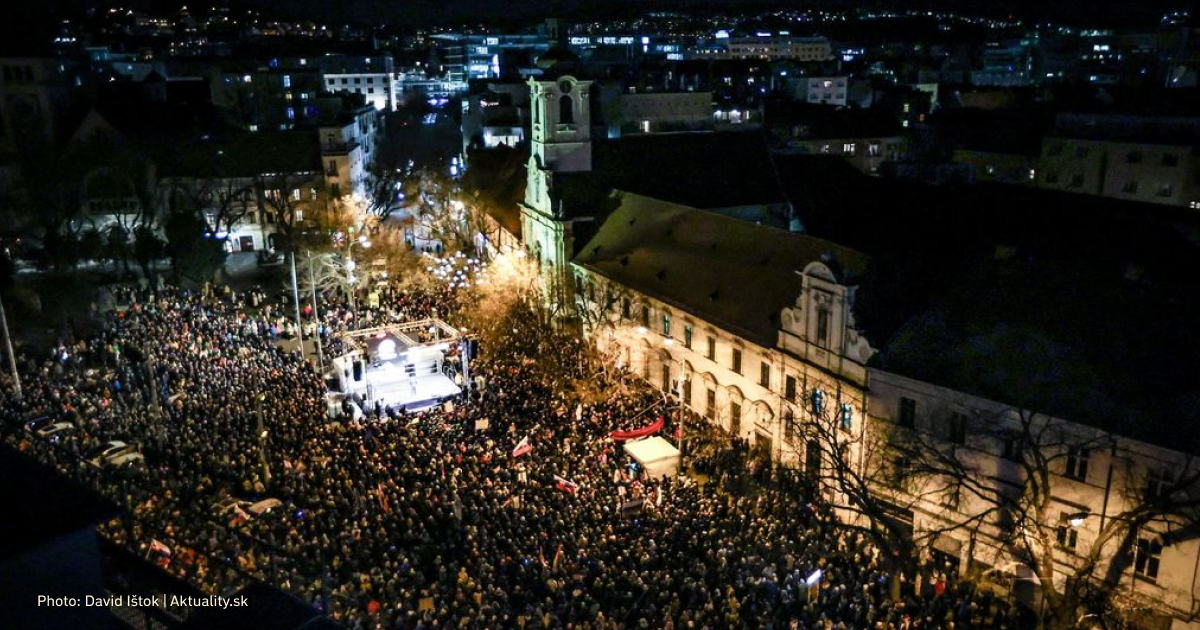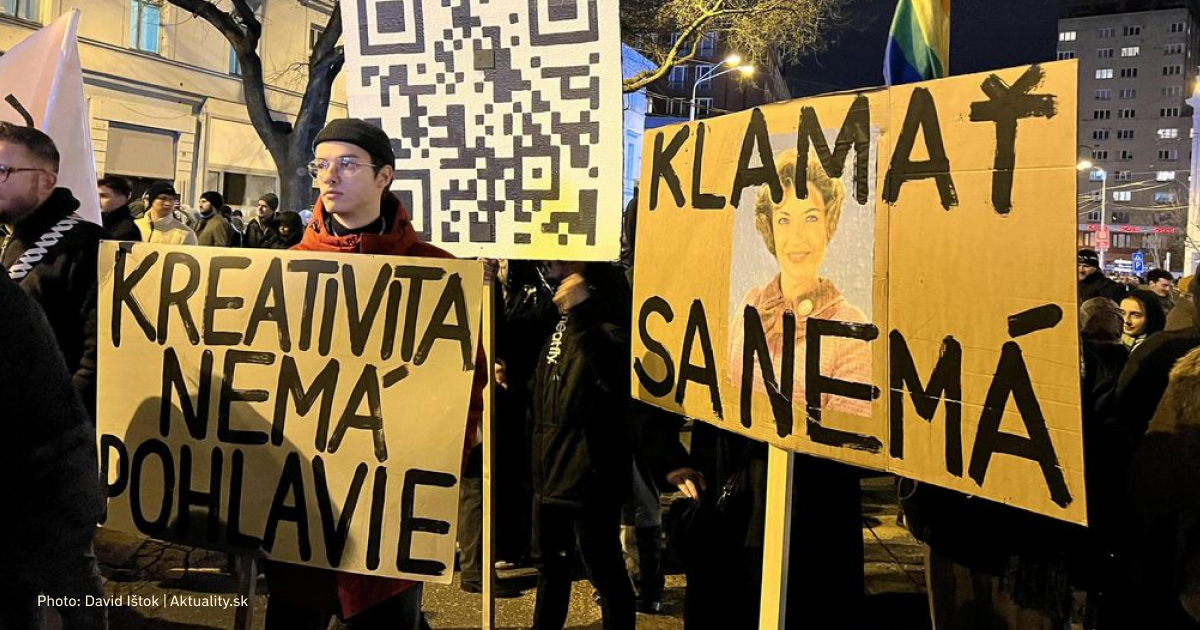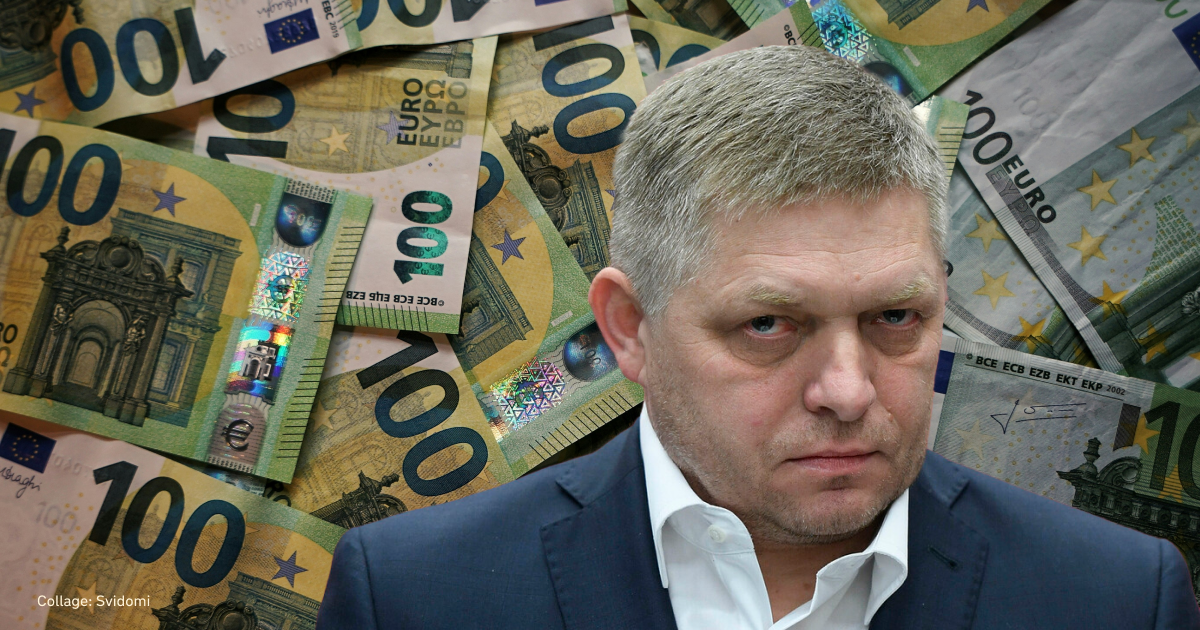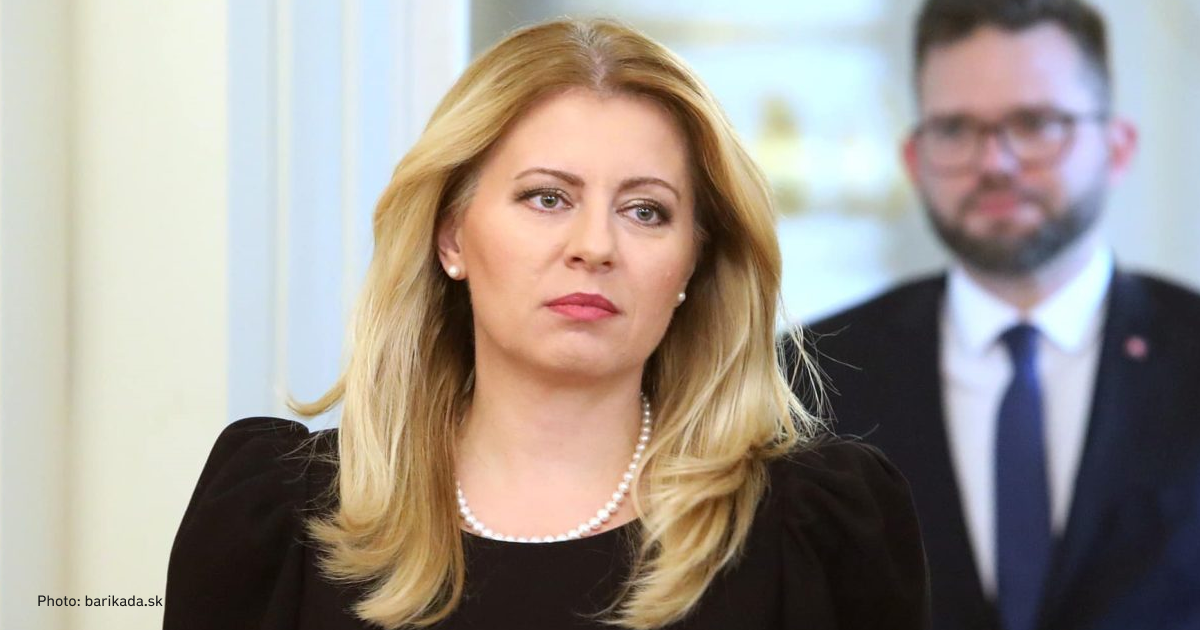'Enough of Fico': massive protests continue in Slovakia against the government's attempt to disband the special anti-corruption prosecutor's office

What has happened?
Anti-government protests have been ongoing in Slovakia since December 2023. A record 27,000 people came to the rally in the capital, Bratislava, organisers say.
A total of 24 Slovak cities joined the protests on 25 January. Last week, according to police estimates, approximately 26,000 people took part in the protests, the Daily Slovak News Aktuality reports.
The activists oppose changes to Slovakia's Criminal Code, particularly the mitigation of punishment and the dissolution of the special prosecutor's office responsible for anti-corruption investigations.
Protesters address their complaints to Slovak Prime Minister Robert Fico and his government.
"We are not ready to give up. We will increase our pressure. We will defend justice and freedom in our country," said the leader of the opposition liberal party Progressive Slovakia (Slovak: Progresívne Slovensko, PS) Michal Šimečka, at a rally in the capital, Bratislava.
The activists chanted, among other things, "Mafia" and "Fico is a bandit".

It will be recalled that on October 25, the leader of the pro-Russian Smer party, Robert Fico, became the Prime Minister of Slovakia for the fourth time. After winning the election, Smer, Hlas and the Slovak National Party signed a coalition agreement.
What changes does Fico's government propose?
The coalition of the current Slovak Prime Minister Robert Fico wants to eliminate the special prosecutor's office, which deals with cases of bribery, organised crime and extremism. The investigation of these cases is to be transferred to regional prosecutors.
The amendments to the Criminal Code will also include lighter sentences, including for corruption offences, the possibility of a suspended sentence, and a shorter statute of limitations for closing cases.

On January 25, Fico's coalition voted in favour of an accelerated parliamentary procedure to pass these changes. Experts and others involved in standard legislative procedures will not review the draft law.
"The absence of expert discussion multiplies the risks associated with this amendment, as there is no analysis of all its practical and technical consequences," said Slovak President Zuzana Čaputová.
In addition, MPs limited the discussion to the first of three parliamentary readings.
Fico argues that Slovak sentences are too harsh compared to many European countries and accuses the Special Prosecutor's Office of bias against his party.
"There is no other institution in Slovakia where the threat to fundamental rights and freedoms of Slovak citizens would be as acute as in the case of the special prosecutor's office," the Slovak prime minister said.
What is the response at home and worldwide?
Slovakia’s President Zuzana Čaputová called on government officials to reconsider the amendments to the criminal code and the dissolution of the special prosecutor's office.
"The proposed amendments in their current form would contradict the Constitution of Slovakia and violate the principles of the rule of law," Chaputova said.
In December 2023, Zuzana Čaputová warned the parliament that she would most likely veto the accelerated changes to criminal law if there were no proper discussions of the draft law.

The European Parliament also criticised the reform of the criminal code. MEPs passed a resolution questioning Slovakia's ability to fight corruption and protect the EU budget if it adopts such changes.
"The European Parliament is particularly concerned about the unjustified use of a fast-track procedure for the Criminal Code reform and the dissolution of the [Slovakia] Special Prosecutor's Office. These changes threaten the integrity of judicial processes and undermine the EU's fight against fraud," the European Parliament’s website reads.


